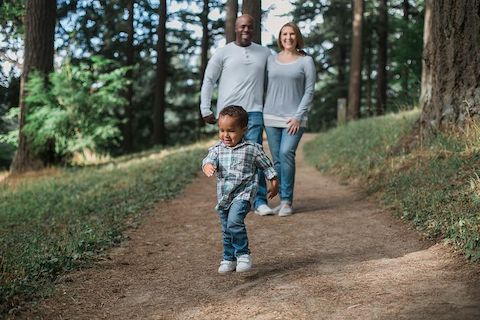10 Signs of a Healthy Relationship
By Dr. Margaret PaulDecember 31, 2006
Is your relationship healthy? Take a few minutes to read through this article and see how your relationship is doing.
 "My parents had a very good relationship," I often hear my clients say.
"My parents had a very good relationship," I often hear my clients say.
"What do you mean by good?" I ask.
"They didn't fight. They spent a lot of time with each other."
That may have been the definition of a good relationship years ago, but now most people want more. Following are ten signs of a healthy relationship.
Kindness
Is kindness more important to each of you than having your way, being in control, or being right? Do you each receive joy out of being kind to each other? Being kind rather than controlling with each other is essential for a healthy relationship.
Spontaneous Warmth and Affection
Do you and your partner well up with warmth and fullness of heart for each other and express it with affection? Are you each able to see the beautiful essence within each other, rather than just the faults? Are you able to get beyond the outer to the unique inner Self of each other? Do you enjoy sharing affection? Warmth and affection are vital for a healthy relationship.
Laughter and Fun
Can the two of you laugh and play together? Do you appreciate and enjoy each other's sense of humor? In the midst of difficulties, can you help each other to lighten up with humor? Can you let down and be playful with each other, letting yourselves be like kids together? Laughter and fun play a huge role in a healthy relationship.
Enjoying Time Together and Time Apart
Are you both each other's favorite person to spend time with? Are you motivated to set aside time just to be together?
Do both of you have friends and interests that you enjoy doing? Are both of you fine when you are not together?
Some couples spend a lot of time together because they really enjoy it, while others spend a lot of time together out of fear of being alone. It is important for a healthy relationship for each person to have friends and interests, so that they are not dependent on each other. Dependency is not healthy in a relationship, particularly emotional dependency.
A Method for Conflict Resolution
All relationships have some conflict. It is not the conflict that is the issue, but how you deal with it. Do you have a method for resolving conflict, or do the issues just keep getting swept aside? If fighting is part of how you deal with conflict, do you fight fair, or are you hurtful when you fight?
Letting Go Of Anger
If one or both of you get angry, do you hang on to it, punishing your partner with it, or can you easily let it go? In healthy relationships, both partners are able to quickly move on, back into kindness and affection. Practicing the Inner Bonding process is a powerful way of letting go of anger and blame and moving back in kindness.
Trust in Your Love for Each Other
Do you each trust that the love is solid, even in very difficult times between you? Do you each know that you can mess up, fail, disappoint the other, emotionally hurt the other - and the love will still be there? Do you each know that the love is about who you are, not what you do? This level of trust is essential for a healthy relationship.
Listening, Understanding, Accepting and Learning
Do you each feel heard, understood and accepted? Can you share your secrets with your partner without fearing being judged? Are you each more interested in learning about yourselves and each other than you are in controlling each other? Is listening to each other with an open heart and a desire to understand more important than judging each other or defending yourselves?
Sexuality
Is your sexual relationship warm and caring? Can you be sexually spontaneous? Can you talk with each other about what brings pleasure to each of you?
Freedom to be Yourself
Do you each feel free to be all that you are? Do you each feel supported in pursuing what brings you joy? Does your partner feel joy for your joy?
While some people may naturally be open, kind, affectionate, accepting, and emotionally responsible for themselves, most people need to heal the fears and false beliefs they learned in their families. Healthy relationships evolve as each person evolves in his or her ability to be loving to themselves and each other.
Learning and practicing the Inner Bonding process leads to healthy relationships!
Heal your relationship with Dr. Margaret’s 30-Day online relationship course: Wildly, Deeply, Joyously in Love.
 Send this article to a friend
Send this article to a friend  Print this article
Print this article  Bookmarked 13 time(s)
Bookmarked 13 time(s)
| Related Articles |
|---|
| 7 Ways to Improve Your Relationship |
| 5 Relationship Killers and How to Avoid Them |
| 5 Actions For Successful Relationships |
Comments
| Author | Comment | Date |
|---|---|---|
| Join the Inner Bonding Community to add your comment to articles and see the comments of others... | ||

Daily Inspiration
Today, remember that you are a child of God. Remember that Spirit supports your highest good at all times. Remember that it is your birthright to give and to receive. Remember that we live in an abundant universe and that you have a right to and are deserving of that abundance.
By Dr. Margaret Paul

 Share with Del.icio.us
Share with Del.icio.us Share with Digg
Share with Digg







